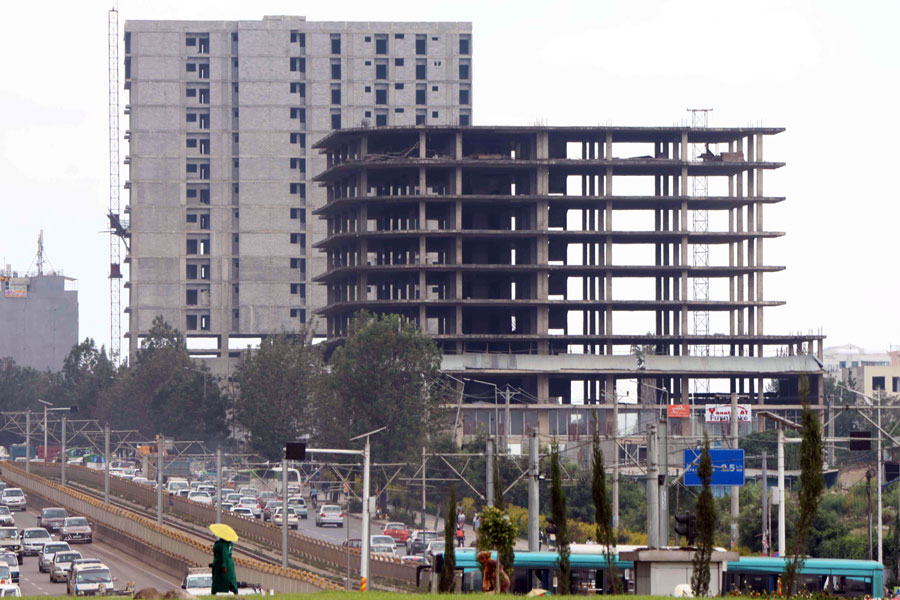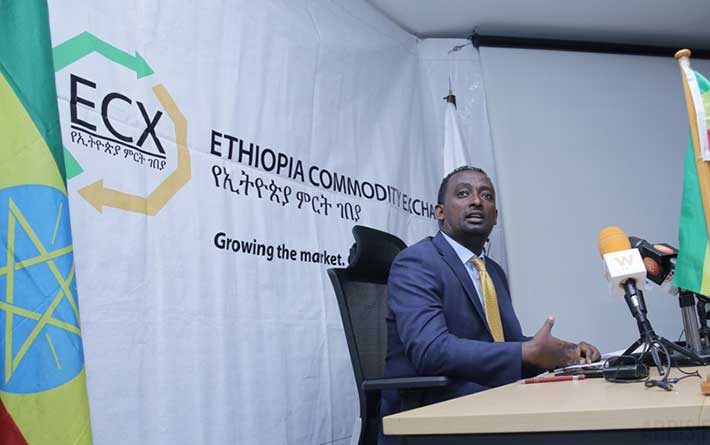
Agenda | Oct 20,2024
In a startling turn of events, Access Real Estate shareholders recently chose to reinstate Ermias Amelga, the controversial businessman and founding shareholder, to the company's board. This comes a decade after elections for board positions were last conducted. Ermias, who has been implicated in the company's past failures, is once again at the helm a decade after the real estate firm became a hotbed of controversy.
This reinstatement of Ermias and the new board represents a significant juncture for Access Real Estate. With a controversial past behind them and an uncertain future ahead, the company's ability to regain trust and deliver on its promises to homebuyers remains to be seen. Amidst these challenges, shareholders, board members, and homebuyers hope for a successful "last dance" to turn the company's fortunes around and restore its reputation in the real estate market.
Access Real Estate, established in 2008 with a modest initial capital of 50,000 Br, had once promised to revolutionize the conventional real estate industry. Targeting the burgeoning middle class in the capital, the company pledged a timely and affordable delivery of apartment units, attracting thousands of prospective homeowners with this ambitious proposition.
The company's strategy involved a high stake commitment to deliver housing units within one year, coupled with a pledge to pay monthly rents of up to 5,000 Br if it failed to meet deadline. To further sweeten the deal, the company offered to refund any advance payments with a 10pc top-up if a buyer chose to terminate the contract. Access Real Estate`s ambition to cut project timelines in half, a feat unmatched by competitors, was attributed mainly to the steel construction technology meant to be provided by Living Steel Plc.
However, this initial surge of momentum was short-lived, as a myriad of problems soon inundated the firm. Despite collecting billions of Birr, Access Real Estate fell short of its commitment to deliver housing units to over 2,000 buyers. The company's unconventional approach to land acquisition, which involved partnering with property owners rather than participating in city administration lease auctions, further complicated matters.
The company's fortunes took a drastic turn when Ermias, the architect of its business model, left the country in the early 2010s amid allegations of issuing checks with insufficient funds. His departure, after brief police custody, destabilized the company, creating a precarious situation that persisted even after his high-profile return in 2015, when he sought to rectify the company's failures.
Ermias, who had returned to Ethiopia from the United States in the early 1990s, had a notable history as an entrepreneur, introducing domestically bottled water with the brand "Highland." He had also been a shareholder in the now-defunct investment advisory firm, East African Investments, and had been instrumental in establishing Zemen Bank. His career exemplifies the potential and pitfalls of doing business in emerging markets like Ethiopia.
After a 10-year stalemate, Access Real Estate finally convened a shareholders' meeting when stakeholders with more than 10pc holdings petitioned the Ministry of Trade & Regional Integration (MoTRI) to call for a general assembly. Mitkua Adugna, the Ministry's director for share companies acquisition and merger, disclosed that shareholders representing 25.2pc of the paid-up capital attended the meeting, held at Genet Hotel, on Mozambique St. Seven board members were elected to serve for the next three years.
Mekuriya Degu, the newly elected board chairperson, emphasized the need to clearly understand the company's complex situation and the importance of deliberate actions to manage the tasks ahead.
A father of four, Mekuria is a founding shareholder who owns 100 share at par value of 1,000 Br. A veternan civil service man, he had served in the board entrusted with state enterprises before their fate is decieded, and a garment plant in Adama (Nazareth), producing military uniforms.
"We need to ponder our steps to restore goodwill," he told Fortune.
The new board, the fourth board since the company`s incorporation, now faces the daunting task of regaining shareholders` confidence, which includes negotiating the unfreezing of the company's assets, restoring relationships with contractors, and securing financial resources.
Getnet Yawkal, a legal expert, raised concerns about the legality of convening shareholders after such a long hiatus and questioned whether the company had complied with the regulations governing share companies' operations.
Despite past controversies, one anonymous shareholder bought 100 shares during Access Real Estate's public offering, has voted for Ermias` return to the board, viewing it as a "last resort" to resolve the company's issues.
"It will be their last dance," he said. "There needs to be a robust corporate governance structure to ensure the company delivers on its promises to homebuyers."
Ethiopia Tadesse, a homebuyer affected by the company's previous failures, considers the reconstitution of the board as a positive step forward. However, she stresses that future efforts must take into account the shortcomings of previous attempts, even those led by federal authorities. Ethiopia hopes the company will prioritize timely communications with homebuyers and uphold their best interests.
"Although it appears to be an ideal resolution given the circumstances, I expect my house to be delivered," she said.
Ermias, despite his tumultuous past with Access Real Estate, remains optimistic about the company's future. He believes the newly elected board possesses the requisite skills to navigate the challenges ahead and fulfill the company's promises to homebuyers. He points to valuable assets, including prime plots of land in the capital, as a basis for the company's promise to bounce back, despite the current issue with liquidity.
"We've assets," Ermias declared. "Our financial problem is related to cash liquidity."
For Ermias, the company has been on the brink of resolving issues with half of the homebuyers, including those who have won court cases. This resolution includes negotiations with 250 homebuyers at the Lebu and Kara Kore sites, each offering 200sqm plots for independent development.
"The remaining homebuyers will receive their homes from Access Real Estate on plots acquired from individual deed holders," he assured.
PUBLISHED ON
May 13,2023 [ VOL
24 , NO
1202]

Agenda | Oct 20,2024

Fortune News | Aug 02,2025

Fortune News | Jun 21,2025

Commentaries | Feb 23,2019

Radar | Feb 13,2021

Commentaries | Nov 26,2022

Fortune News | Aug 03,2019

Radar | Jun 29,2025

Viewpoints | Jun 22,2024

Commentaries | Oct 10,2020

Dec 22 , 2024 . By TIZITA SHEWAFERAW
Charged with transforming colossal state-owned enterprises into modern and competitiv...

Aug 18 , 2024 . By AKSAH ITALO
Although predictable Yonas Zerihun's job in the ride-hailing service is not immune to...

Jul 28 , 2024 . By TIZITA SHEWAFERAW
Unhabitual, perhaps too many, Samuel Gebreyohannes, 38, used to occasionally enjoy a couple of beers at breakfast. However, he recently swit...

Jul 13 , 2024 . By AKSAH ITALO
Investors who rely on tractors, trucks, and field vehicles for commuting, transporting commodities, and f...

Oct 25 , 2025
The regulatory machinery is on overdrive. In only two years, no fewer than 35 new pro...

Oct 18 , 2025
The political establishment, notably the ruling party and its top brass, has become p...

Oct 11 , 2025
Ladislas Farago, a roving Associated Press (AP) correspondent, arrived in Ethiopia in...

Oct 4 , 2025
Eyob Tekalegn (PhD) had been in the Governor's chair for only weeks when, on Septembe...